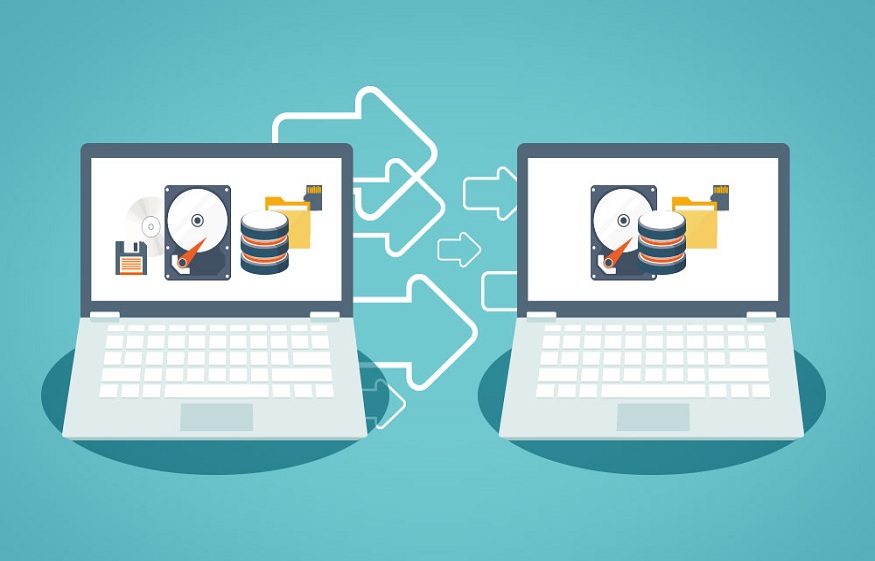In today’s digital age, businesses constantly seek effective collaboration and communication solutions to streamline their operations. Microsoft Teams has emerged as a leading platform that offers a comprehensive suite of features for businesses of all sizes. However, migrating to Microsoft Teams is challenging. In this article, we will explore the five key challenges companies face during migration, providing valuable insights for all businesses looking to go forward with Teams migration.
Legacy System Integration:
One of the primary challenges businesses encounter while migrating to Microsoft Teams is integrating the platform with existing legacy systems. Legacy systems often come with complex configurations, customised functionalities, and compatibility issues that must be addressed during the migration. Ensuring seamless integration between Microsoft Teams and legacy systems requires meticulous planning, comprehensive testing, and effective change management strategies. This challenge can be addressed during the Microsoft Teams pre-migration planning, where all issues can be discussed and catered to before migrating to Microsoft Teams. It ensures smooth transition and minimal disruptions to workflows.
Data Migration and Security:
Data migration is critical to any migration process, and transitioning to Microsoft Teams is no exception. Every business keen on Teams migration must carefully plan data transfer from existing platforms to Teams while ensuring the security and integrity of sensitive information. Organisations must develop robust data migration strategies, perform thorough data cleansing, and ensure compliance with data protection regulations. Safeguarding intellectual property, customer data, and confidential information should be prioritised throughout the migration process.
It would be great to find answers to the question – what data should be migrated? While answering, careful consideration should be given to identifying and migrating essential data. It would include chats, files, channels, and configurations to ensure continuity and accessibility in the new environment.
User Adoption and Training:
Introducing a new collaboration platform like Microsoft Teams requires user adoption and comprehensive training programs. Many businesses could face resistance from employees who are more comfortable with their existing communication tools. Encouraging user adoption and providing training sessions to familiarise employees with Teams’ features and functionalities is crucial. Businesses must invest in change management initiatives, offer continuous support, and provide training resources to overcome resistance and ease the adoption and utilisation of Microsoft Teams.
It would be a good idea to assess the migration workload accurately, including data volume, complexity, and technical requirements. It helps determine the necessary resources and timeline for a successful migration, thereby making things easier for the employees and helping overcome resistance to a large extent.
Governance and Compliance:
With Microsoft Teams’ vast array of collaboration features, businesses must establish governance policies and ensure organisational compliance. Companies must define guidelines for document sharing, guest access, channel creation, and data retention. Regulatory compliance requirements, such as GDPR or HIPAA, should be carefully considered during migration. Ensuring the right balance between empowering employees to collaborate and maintaining compliance is vital to mitigate risks and safeguard sensitive information.
At this stage, it is also vital to ascertain if various teams within the organisation have the appropriate membership and permissions. Businesses must review the membership and permissions before migration to ensure that the right individuals have access to the appropriate resources in Microsoft Teams.
Technical Challenges:
Microsoft Teams migration involves complex technical challenges that every business must overcome. These challenges include network readiness, scalability, interoperability, and third-party application integrations. Organisations must evaluate their network infrastructure and bandwidth capabilities to support the increased usage of Microsoft Teams. Ensuring compatibility with existing hardware, software, and third-party applications is crucial for a smooth migration experience. Technical expertise and collaboration with experienced IT professionals can help address these challenges effectively.
Every organisation should also estimate the risk of downtime and data loss, as these are inherent risks associated with any migration process. You can address this challenge by implementing robust backup strategies, conducting thorough testing, and having contingency plans to ensure a smooth migration process.
As organisations embark on the journey toward migrating to Microsoft Teams, they must be prepared to face several key challenges. Legacy system integration, data migration, security, user adoption and training, governance and compliance, and technical obstacles require careful consideration and planning. By proactively acknowledging and addressing these challenges, businesses can streamline their migration process, maximise the benefits of Microsoft Teams, and create a collaborative and efficient digital workplace environment. By embracing Microsoft Teams as a communication and collaboration platform, businesses can revolutionise their operations, leading to increased productivity, streamlined workflows, and enhanced teamwork. In short, it can be an empowering move if you do it the right way.

